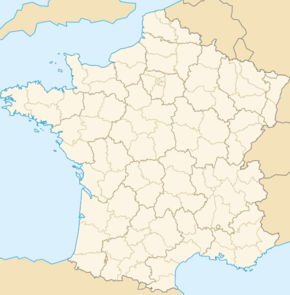They
- They
-
Sorans-lès-Breurey
Sorans-lès-Breurey est une commune française, située dans le département de la Haute-Saône et la région Franche-Comté.
Géographie
Histoire
Administration
| Liste des maires successifs |
| Période |
Identité |
Parti |
Qualité |
| mars 2008 |
|
Rémy Munerot |
|
|
| mars 2001 |
mars 2008 |
Rémy Munerot |
|
|
| Toutes les données ne sont pas encore connues. |
Démographie
Évolution démographique
| 1962 |
1968 |
1975 |
1982 |
1990 |
1999 |
2007 |
| 131 |
146 |
167 |
196 |
250 |
345 |
389 |
Nombre retenu à partir de 1962 : population sans doubles comptes
2007 : Population provisoire (enquête annuelle). |
Lieux et monuments
- Maison forte de Sorans
- Château du XVIe siècle construit par Étienne de Labrey, transformé en ferme fortifiée.
Personnalités liées à la commune
Voir aussi
Liens externes
Catégorie : Commune de la Haute-Saône
Wikimedia Foundation.
2010.
Contenu soumis à la licence CC-BY-SA. Source : Article They de Wikipédia en français (auteurs)
Regardez d'autres dictionnaires:
They — (IPAEng|ðeɪ) is a third person, personal pronoun (subject case) in Modern English.UsageThe singular they is the use of this pronoun, where they is used as a gender neutral singular rather than plural pronoun. The correctness of this usage is… … Wikipedia
They — ([th][=a]), pron. pl.; poss. {Theirs}; obj. {Them}. [Icel. [thorn]eir they, properly nom. pl. masc. of s[=a], s[=u], [thorn]at, a demonstrative pronoun, akin to the English definite article, AS. s[=e], se[ o], [eth][ae]t, nom. pl. [eth][=a]. See… … The Collaborative International Dictionary of English
They Go On — was an dot com era Internet only soap opera developed by Levi Strauss Co. and NBC Digital Productions and streamed from NBC s website. The show, funded entirely by Levi Strauss, was based on characters from their advertising campaign of the same… … Wikipedia
they — pronoun, plural in construction Etymology: Middle English, from Old Norse their, masculine plural demonstrative & personal pronoun; akin to Old English thæt that Date: 13th century 1. a. those ones used as third person pronoun serving as the… … New Collegiate Dictionary
they — /dhay/, pron. pl., poss. their or theirs, obj. them. 1. nominative plural of he, she, and it. 2. people in general: They say he s rich. 3. (used with an indefinite singular antecedent in place of the definite masculine he or the definite feminine … Universalium
they — This word, as well as their, theirs, and them, should have a definite antecedent (something to which it refers) or should not be used. They have good weather in Hawaii is a vague statement because no one can tell what or who is meant by they.… … Dictionary of problem words and expressions
they'd — Date: 1599 they had ; they would … New Collegiate Dictionary
they'll — Date: 1567 they will ; they shall … New Collegiate Dictionary
they'd — /dhayd/ 1. contraction of they had. 2. contraction of they would. Usage. See contraction. * * * … Universalium
they — pronoun /ðeɪ/ a) A group of people or objects previously mentioned. Fred and Jane? They just arrived. b) A single person, previously mentioned, but of unknown or irrelevant gender. I have a Ford Focus and a Toyota Corolla, but they are both… … Wiktionary
they — See: LET THE CHIPS FALL WHERE THEY MAY … Dictionary of American idioms
 France
France
